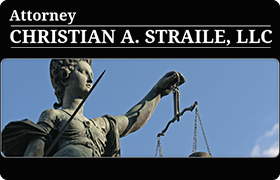 Micanopy Criminal Lawyers, Florida
Micanopy Criminal Lawyers, Florida
Sponsored Law Firm
-
 x
x

Click For More Info:
-
Attorney Christian A. Straile, LLC
1031 NW 6th Street Unit A-2 Gainesville, FL 32601» view mapDUI, Traffic Violations, Drug Crimes Committed to Effectively Helping You
My goal is to protect your rights and best interests. If that means taking a case through trial, I am ready.
352-694-4529
Lawyers
1-1 of 1 matches
Immigration, Family Law, Divorce & Family Law, Criminal





 Christian Straile Gainesville, FL
Christian Straile Gainesville, FL About MeCriminal Attorney
About MeCriminal Attorney PracticesPractice Areas
PracticesPractice Areas